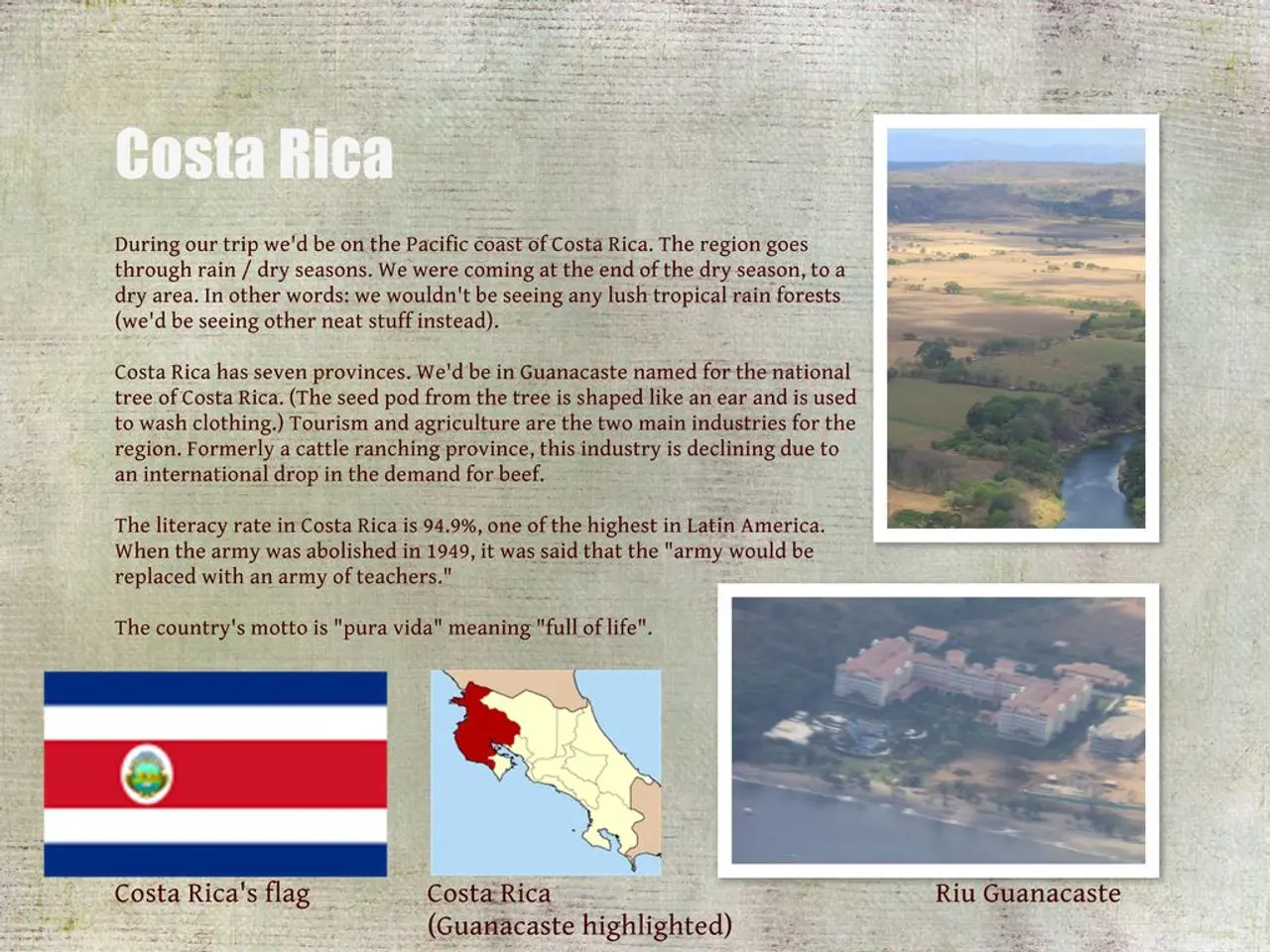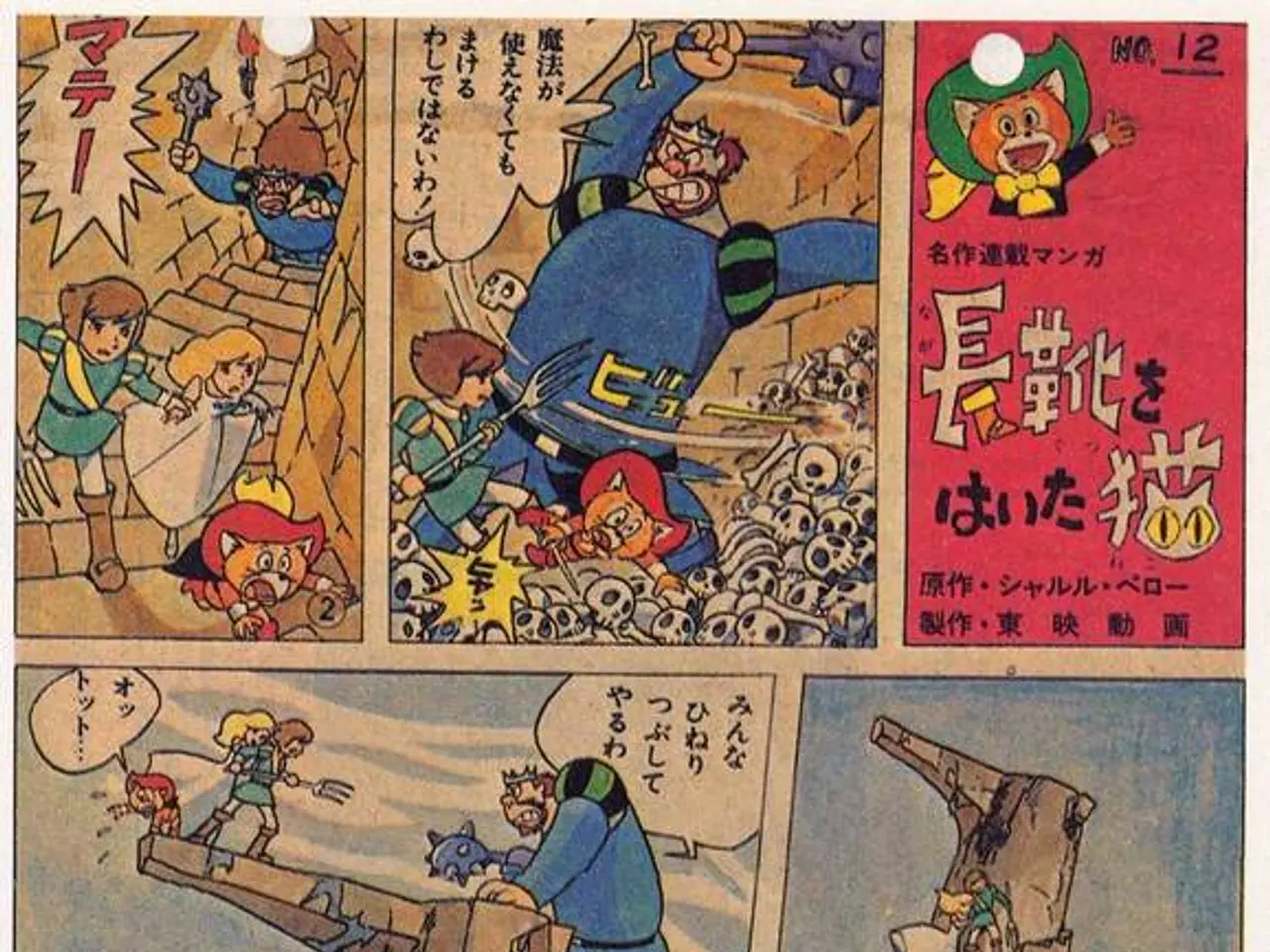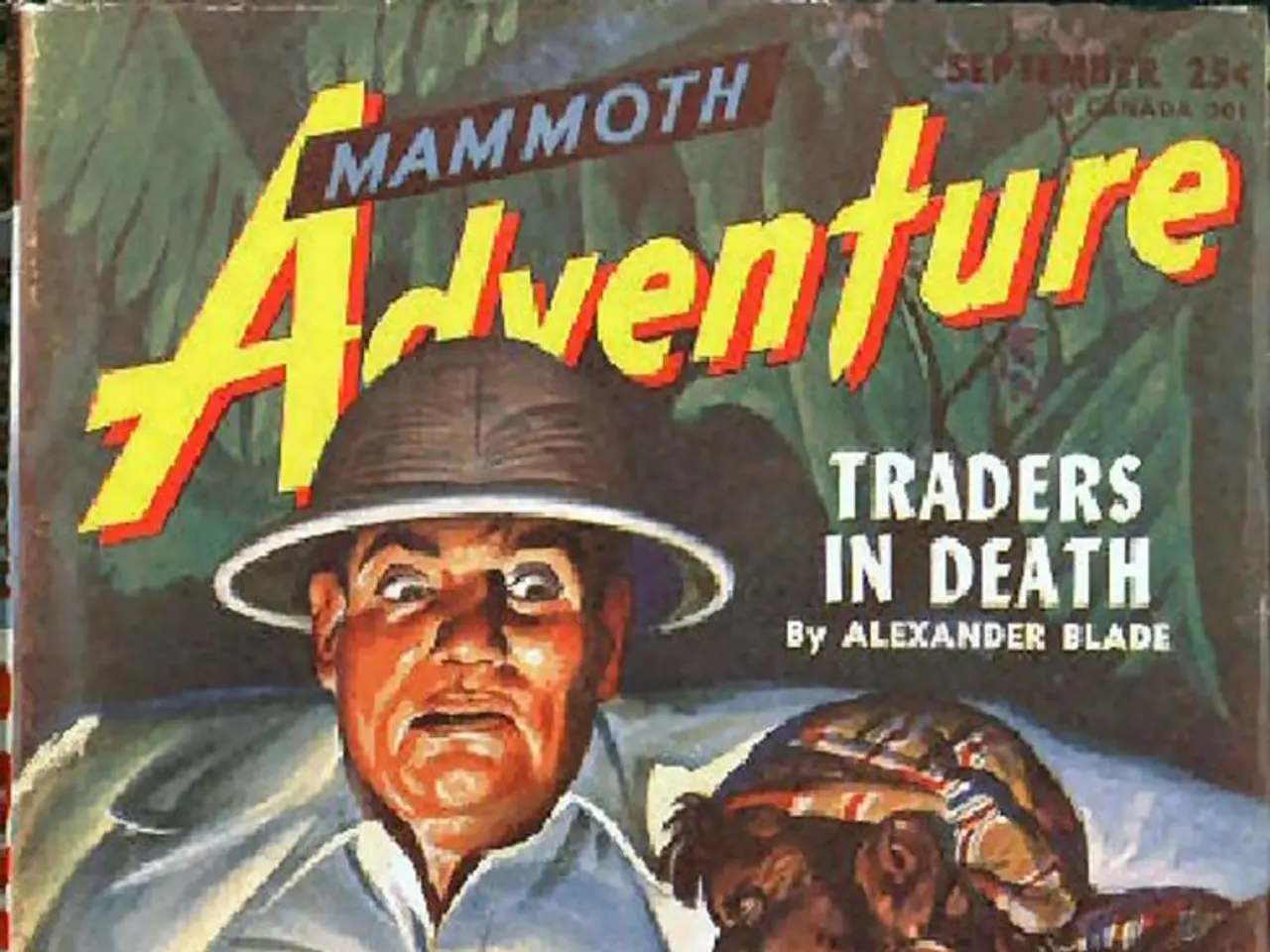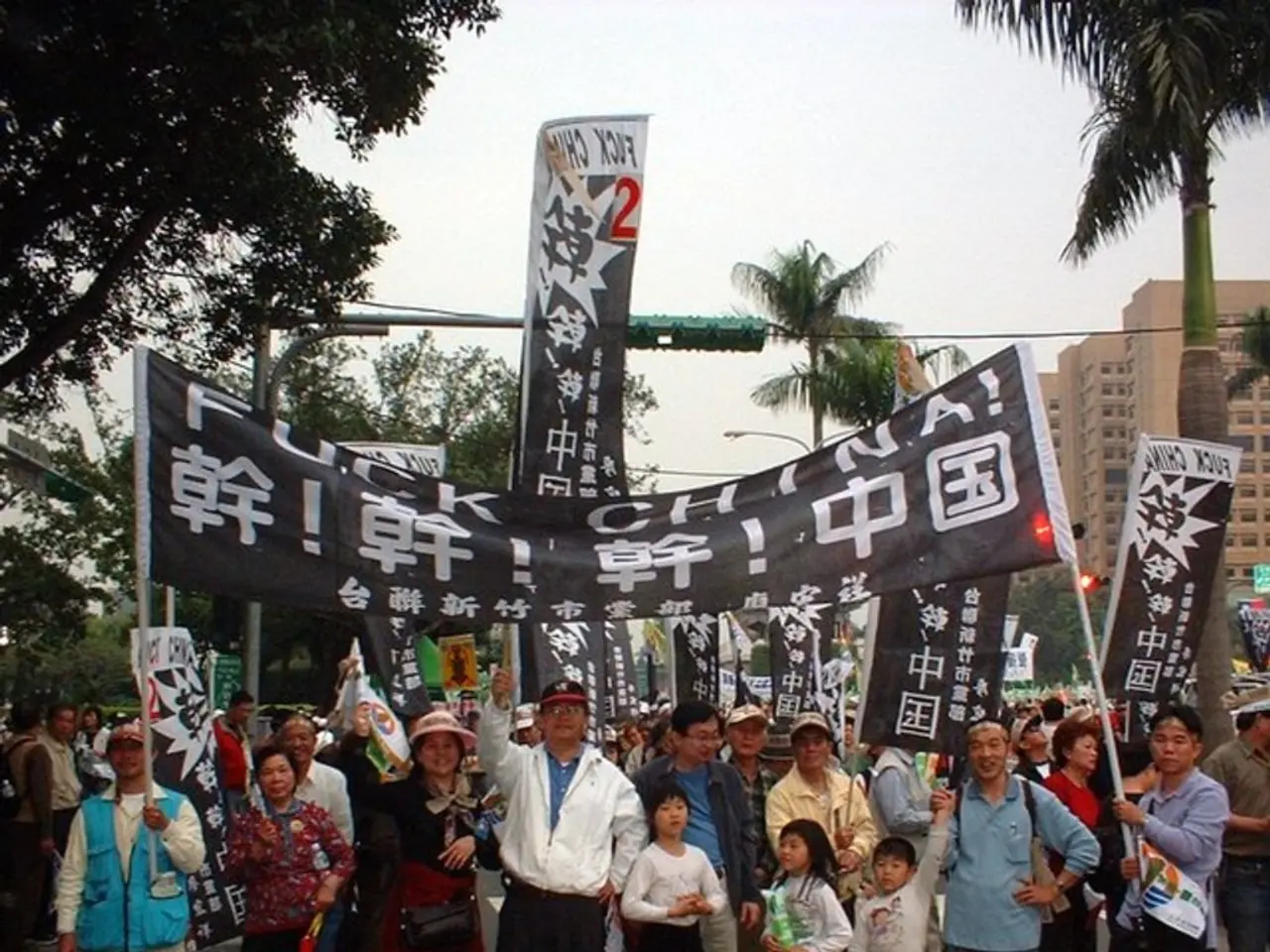Ecuadorian administration embraces a rigidly severe approach
In a significant development, the arrest and subsequent extradition of José Adolfo "Fito" Macías Villamar, the head of Ecuador's powerful drug cartel "Los Choneros," has dealt a substantial blow to the cartel's leadership and international operations. Macías, who had previously escaped prison in 2024, was captured in June 2025 and sent to the United States to face charges including drug and arms trafficking [1][3][4].
This marks the first time Ecuador has extradited one of its nationals for prosecution abroad, signifying a major governmental effort to dismantle organized crime in the country. Macías' arrest triggered a state of "internal armed conflict" in Ecuador, with military deployments to curb the ensuing violence associated with the cartel's disruption [1].
"Los Choneros" is notorious for its violent activities across Ecuador, targeting law enforcement, public officials, and civilians. The cartel also has extensive international alliances with Mexican, Colombian, and Balkan crime groups, facilitating cocaine trafficking through Ecuadorian ports [1][2][3]. The cartel's structure has historically relied on Macías' leadership, coordinating the smuggling of firearms from the U.S. to Ecuador and cocaine shipments in the opposite direction via Mexican cartels [1][3].
Although the arrest disrupts the cartel's command and may temporarily weaken its operational capacity, given the gang's entrenched networks, corruption links within prisons and local communities, and violent means to enforce influence, the group is likely to continue exerting power. Ecuadorian authorities classify Los Choneros as a terrorist organization, reflecting the severity of their threat to national security [3].
The arrest, while a significant law enforcement success, has only partial impact on Los Choneros’ structure and influence in Ecuador. The cartels' activities in money laundering alone amount to four billion USD, and they have expanded their influence into politics, institutions, and the judiciary, as well as increasing activities in taxi and bus services, trade, kidnappings, illegal mining, and money laundering [5].
The murder rate in the country increased from 13 to 17 murders per 100,000 inhabitants after the Manta base was closed in 2009 and returned. The cartels' revenues are reportedly used to reproduce their structures, amounting to more than 2.5 billion USD, which is more than the investment budget of Quito and Guayaquil combined [2].
The government's strategy towards internal violence is questioned due to a lack of a concrete plan with key points and specific goals. Interior Minister John Reimberg could not provide any objectives for the coming months when asked about them [4]. However, the Ecuadorian government is responding with intensified police and military cooperation with the U.S. to contain the cartel's activities and prevent reorganization [4].
In conclusion, while the arrest of Macías is a landmark law enforcement success, the threat from Los Choneros remains significant due to their deep local roots, international alliances, and corruption networks. The Ecuadorian government's response, including increased cooperation with the U.S., is aimed at containing the cartel's activities and preventing reorganization.
References:
- BBC News (2025). Ecuador drug cartel leader extradited to US. [online] Available at: https://www.bbc.co.uk/news/world-latin-america-57639979
- Reuters (2025). Ecuador's drug cartels make $2.5 billion a year, study says. [online] Available at: https://www.reuters.com/article/us-ecuador-drugs-idUSKBN24W2XB
- The Guardian (2025). Ecuador declares drug cartel Los Choneros a terrorist group. [online] Available at: https://www.theguardian.com/world/2025/apr/01/ecuador-declares-drug-cartel-los-choneros-a-terrorist-group
- Al Jazeera (2025). Ecuador's government under fire for lack of strategy on internal violence. [online] Available at: https://www.aljazeera.com/news/2025/5/12/ecuador-s-government-under-fire-for-lack-of-strategy-on-internal-violence
- El Universo (2025). Cartel activities expand into politics, institutions, and the judiciary. [online] Available at: https://eluniverso.com/noticias/2025/06/25/cartel-activities-expand-into-politics-institutions-and-the-judiciary/
The government's response to the dismantling of Los Choneros includes increased cooperation in politics and law enforcement with the U.S., indicative of a broader national effort to address war-and-conflicts and crime-and-justice issues. However, the cartel's extensive corruption networks, revenue generation from general-news activities like money laundering, and influence over institutions suggest a protracted struggle to contain their power.








